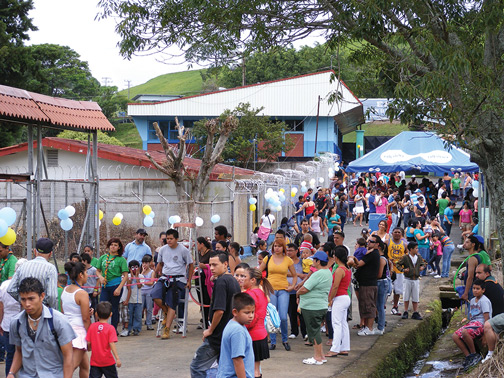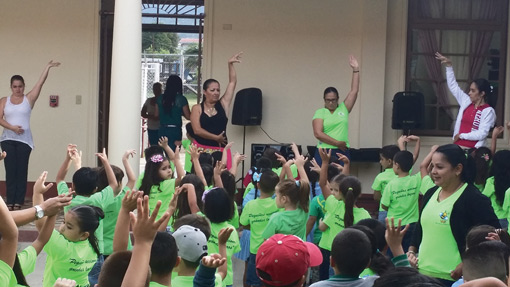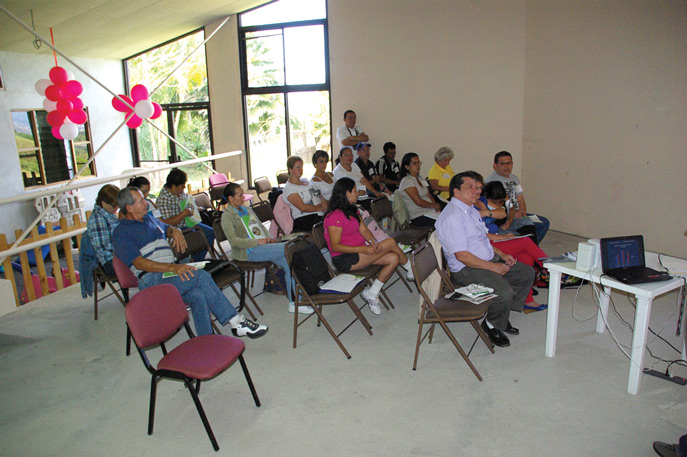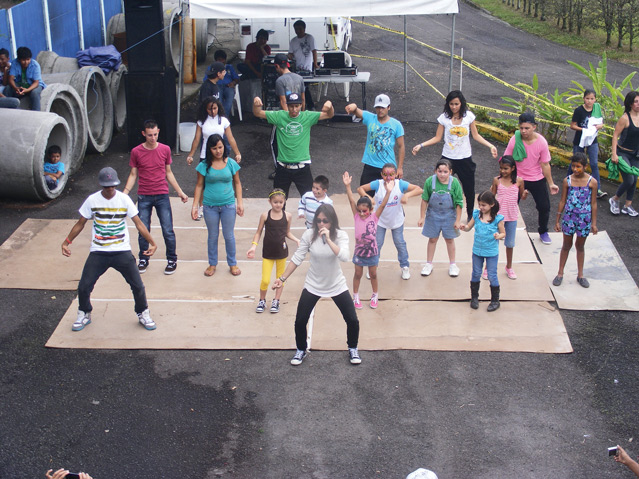Translating nutrition science, into community nutrition transformations
The University of Costa Rica (UCR) is a state institution, which has a Competitive Fund for Strengthening the University Relationship with Society. The Fund is run
by the Vice Presidency of Social Action, and uses public financed development projects with the aim of encouraging innovative collaboration with other
stakeholders in finding solutions to national problems, and especially targeting the most vulnerable.
[vc_row row_type=”row” text_align=”left” css_animation=””][vc_column width=”1/2″]

Xinia Fernandez Rojas
Ph.D. Health Behaviour / Science and Nutrition, Professor and Researcher at the University of Costa Rica[/vc_column_text][/vc_column][/vc_row][vc_row row_type=”row” text_align=”left” css_animation=””][vc_column][vc_separator type=”transparent”][/vc_column][/vc_row][vc_row row_type=”row” text_align=”left” css_animation=””][vc_column][vc_column_text custom_options=””]
Strengthening the relationship between university and society
The University of Costa Rica (UCR) is a state institution, which has a Competitive Fund for Strengthening the University Relationship with Society. The Fund is run by the Vice Presidency of Social Action, and uses public financed development projects with the aim of encouraging innovative collaboration with other stakeholders in finding solutions to national problems, and especially targeting the most vulnerable.

The goal of teaching extension is to allow the use of University resources to carry out special programs to meet the specific demands of communities and public institutions, as well as disseminating knowledge from academic and research units.
According to the latest National Nutrition Survey, conducted between 2008-2009, 21.4% of children between 5 and 12 years old in Costa Rica suffer from overweight and obesity. This is an increase of 6.5 % compared with the results of 1996. Data from the 2015 School of Nutrition at the University of Costa Rica (UCR) shows that the prevalence is now higher than 30%. To contribute to the prevention of childhood obesity in Costa Rica, in early 2009 UCR developed the model for the prevention of childhood obesity, “Póngale Vida®”. This programme promotes healthy eating and physical activity for children of any nutritional status, through a culturally and socially responsible approach.
 [/vc_column_text][/vc_column][/vc_row][vc_row row_type=”row” text_align=”left” css_animation=””][vc_column][vc_separator type=”transparent”][/vc_column][/vc_row][vc_row row_type=”row” text_align=”left” css_animation=””][vc_column][/vc_column][/vc_row][vc_row row_type=”row” text_align=”left” css_animation=””][vc_column][vc_column_text custom_options=””]
[/vc_column_text][/vc_column][/vc_row][vc_row row_type=”row” text_align=”left” css_animation=””][vc_column][vc_separator type=”transparent”][/vc_column][/vc_row][vc_row row_type=”row” text_align=”left” css_animation=””][vc_column][/vc_column][/vc_row][vc_row row_type=”row” text_align=”left” css_animation=””][vc_column][vc_column_text custom_options=””]
The Póngale Vida® model.
The model considers all scenarios that may affect the ability of children to make decisions about their diet and physical activity. It includes strategies for the classroom, the school, family and community, and aligns seamlessly with the Ministry of Education through its local offices, schools, boards of education, nutrition committees in each school, teachers and families, as well as municipalities and organised community groups.
School interventions include food and nutrition education and growth monitoring, feeding practices and physical activity. The model has collected data on weight, size and feeding habits of more than 4,000 school and preschool children, which helps give a big picture view of the nutritional status, dietary practices and physical activity in schools as well as disaggregated data by age, grade education, gender and school.
The model has identified a growth in the spatial distribution of food retailers, and a lack of recreation areas around schools. As a result of this process, local governments can consider the location of these places when granting operating permits to businesses. This analysis has been a significant contribution to informing the Ministry of Education’s response.
The data has indicated over-consumption in schools and preschools, which instigated the review of the National Programme of School Feeding. This has allowed a technical approach to report changes in school dining menus and areas, budget allocation and equipment as well as prioritisation of the schools and age groups which the Ministry should focus on, or, alter its contribution toward supplementary feeding, improved safety, staff training, empowerment of boards of education and school staff.
So far the programme has covered more than 7000 school children and preschoolers, trained more than 600 teachers and administrative staff of schools and school canteens, 75 community leaders and more than 30 mothers and female champions for preventing childhood obesity. It has also helped strengthen community leadership in eight districts in the Canton Union through the empowerment of their leaders, who are now taking action to promote healthy eating and physical activity – reaching more than 10,000 families.[/vc_column_text][/vc_column][/vc_row][vc_row row_type=”row” text_align=”left” css_animation=””][vc_column][vc_separator type=”transparent”][/vc_column][/vc_row][vc_row row_type=”row” text_align=”left” css_animation=””][vc_column][/vc_column][/vc_row][vc_row row_type=”row” text_align=”left” css_animation=””][vc_column][vc_column_text custom_options=””]
Lessons learned
This initiative has helped to demonstrate to the Ministry of Education that the school feeding program should be updated. This program was born to alleviate undernutrition and stunting and now it must adapt to meet the growing number of overweight children and adolescents.
Since 2013, the school meals program has ensured that all children receive at least one meal and in some cases two meals at school a day. This means that a good percentage may not need the extra meals received from the feeding program that may be contributing to the obesity epidemic. Thus, there is a need for a selection system.
Further to this, schools are mostly oriented to provide resources for cognitive development but many schools do not have space for recreation activities.

The obesity epidemic is urging the Ministry of Education to provide nutrition education at schools and to transform spaces for promoting healthy lifestyles, not only for the students but for all working in the educational system. It is also mandatory to monitor their nutritional status, which can provide information on the changes and needs.
The program requires the inclusion of professional nutritionists in order to guarantee the management, food safety, nutritional value, education and optimisation of administrative processes. Currently the administration of the program is in the hands of the education boards formed mostly by parents, teachers and food service workers.[/vc_column_text][/vc_column][/vc_row][vc_row row_type=”row” text_align=”left” css_animation=””][vc_column][vc_separator type=”transparent”][/vc_column][/vc_row][vc_row row_type=”row” text_align=”left” css_animation=””][vc_column]
The way forward
This program is a key for social protection and requires a new structure in order to support the need of those suffering from hunger and poverty and to prevent childhood obesity.
The Póngale Vida® model offers a methodological framework to promote healthy eating, physical activity and nutritional surveillance within the new proposed structure. Improving this important program will contribute to the prevention and control of the most chronic diseases related to nutrition and will help to save millions of dollars in health care services to the country.
 [/vc_column_text][/vc_column][/vc_row][vc_row row_type=”row” text_align=”left” css_animation=””][vc_column][/vc_column][/vc_row]
[/vc_column_text][/vc_column][/vc_row][vc_row row_type=”row” text_align=”left” css_animation=””][vc_column][/vc_column][/vc_row]